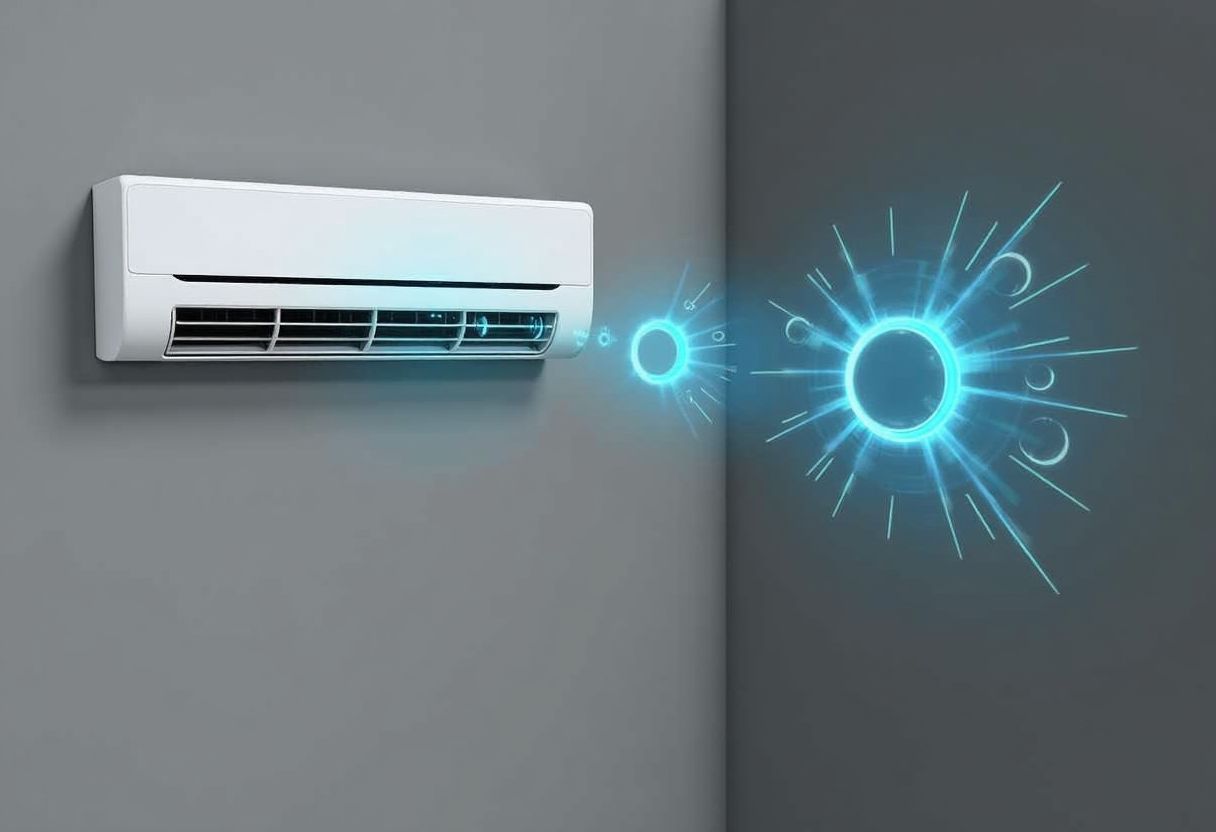Artificial intelligence (AI) is transforming the air conditioning industry, offering smarter, more energy-efficient systems than ever before. As we move further into 2025, AI is not just a buzzword—it’s becoming a core part of how modern air conditioning systems operate, making homes and businesses more comfortable, efficient, and sustainable.
How Is AI Transforming the Air Conditioning Industry in 2025?
AI is fundamentally changing how air conditioners function. No longer limited to simple on/off settings, modern systems now adapt to user behaviour, environmental changes, and energy consumption patterns. This shift is ushering in a new era of smart, responsive climate control.
What Are the Key AI Technologies in Air Conditioning?
- Machine Learning Algorithms: These allow systems to “learn” user preferences and usage patterns.
- Sensor Integration: Real-time environmental sensors help adjust temperature and airflow.
- Data Analytics: AI uses historical and real-time data to predict demand and optimise performance.
How Is Energy Management Evolving with AI?
AI enables predictive energy use by analysing weather forecasts, occupancy trends, and time-of-use tariffs. This results in lower energy bills and reduced environmental impact.
What Role Does LG Play in the AI-Driven Air Conditioning Landscape?

LG is one of the frontrunners in AI-enhanced air condition systems. Their ThinQ platform integrates AI with advanced diagnostics, real-time monitoring, and energy management features, allowing users to control and optimise their indoor climate with ease.
What Are the Latest Air Conditioning Industry Trends in AI Technology?
- Voice-activated controls via smart assistants
- Cloud-based remote diagnostics
- Integration with renewable energy systems
- Geolocation-based temperature automation
How Is AI Optimising Energy Consumption in Air Conditioning Systems?
AI can forecast peak usage times and adjust performance accordingly, reducing strain on power grids and helping users cut down on energy costs. It also balances comfort with efficiency by only cooling occupied rooms.
What Are the Advantages of AI-Powered Air Conditioners?
- Personalised comfort settings
- Improved energy efficiency
- Lower maintenance needs
- Remote control and scheduling
How Are Smart Home Technologies Integrating with Air Conditioning Systems?

AI-enabled air conditioners now seamlessly work with home automation hubs like Google Home and Amazon Alexa. Users can set routines, control climate remotely, and receive energy reports via mobile apps.
How Can AI Improve Energy Efficiency in Air Conditioning?
AI systems optimise runtime, fan speed, and compressor load to ensure minimal energy wastage. They also track and suggest optimal settings based on room usage and outdoor temperatures.
What Are the Benefits of Reducing Energy Consumption with AI?
- Lower electricity bills
- Extended equipment life
- Reduced carbon emissions
- Increased energy independence when paired with solar systems
How Does AI Enhance Temperature Control in Air Conditioning Systems?
AI continuously monitors room conditions and adjusts settings in real time. It can even account for factors like humidity and sunlight exposure to fine-tune comfort levels.
What Is the Impact of AI on Indoor Air Quality?
AI-equipped systems include air quality sensors and filtration monitoring. These features ensure cleaner air by automatically adjusting airflow and filtration based on pollutant levels.
What Are the Future Implications of AI in Air Conditioning Systems?

AI will continue to push the boundaries of what air conditioning systems can do. From full automation to zero-intervention climate management, the future promises more intelligent and sustainable HVAC solutions.
How Will Predictive Maintenance Change Air Conditioning Operations?
AI can forecast system failures and prompt timely maintenance, preventing costly repairs and unexpected breakdowns.
What Innovations Can We Expect in Air Conditioning Technology?
- Self-diagnosing systems
- Integration with smart grids
- AI-driven zoning and airflow redirection
- AI-assisted installation and calibration
How Is AI Contributing to a Sustainable Future in Air Conditioning?
By reducing waste, conserving energy, and optimising performance, AI helps lessen the air conditioning industry’s environmental impact—making green building goals more achievable.
What Should Consumers Know About AI-Powered Air Conditioners?
AI in air conditioning is not just for tech enthusiasts—these features provide practical benefits for everyday users.
How Do AI Features in Air Conditioners Enhance User Experience?
- Ease of use through intuitive interfaces
- Personalised settings based on individual preferences
- Real-time updates on system status and air quality
What Are the Cost Savings Associated with AI Technology in Air Conditioning?
Over time, users benefit from reduced energy consumption, fewer repair costs, and extended system lifespan—making AI a smart long-term investment.
How Can Homeowners Leverage AI for Better Climate Control?
By choosing AI-equipped units and integrating them with home automation platforms, homeowners can achieve precise, efficient, and effortless climate control.









